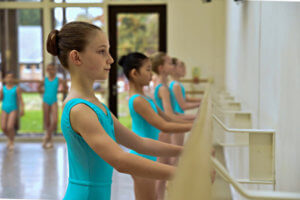Supporting Your Talented Child in the Performing Arts

Anselm Barker, Deputy Principal at Tring Park School for the Performing Arts gives us his top tips for supporting your talented child.
It is a wonderful moment when a child discovers an interest they are passionate about and show a real talent for. Whether it be dance, acting or music, the performing arts give young people the opportunity to learn a wide range of life lessons and it is even proven to assist with academic studies. It is also known that the performing arts can be a great confidence booster for young people. It helps promote self-esteem and a healthy self-image. Many parents will want to support their young child as they demonstrate a clear passion for the arts, so here are some tips on how to help them down that path.
Build a creative home environment
There are many ways you can start to support your child’s talent from home. Wherever you live, and whatever your budget, there are a number of concerts or shows taking place in Tring, and its surrounding areas, appropriate for young children. At local theatres or village halls, taking your child to experience live theatre or music is a great start and will often allow them to explore their interest further and identify their chosen discipline.
As a parent, there’s no doubt that you will want to show an interest in, and appreciation of, your child’s new passion. If you want to get involved, some small theatre groups, schools, or music classes often need additional support, especially at show time. This would be a great opportunity for you to show your creative, business, or social skills, offering to help with newsletters, costumes or props for example.
Bring in the experts
 Enrolling your child into a specialist school or club from an early age can help with developing their talent. Whether it be a local community dance studio or full-time performing arts school, there are many options out there. And with each one, there are opportunities for your child to progress further, whether it’s being given the chance to perform on a regular basis, signing up for professional auditions or even being introduced to an industry agent.
Enrolling your child into a specialist school or club from an early age can help with developing their talent. Whether it be a local community dance studio or full-time performing arts school, there are many options out there. And with each one, there are opportunities for your child to progress further, whether it’s being given the chance to perform on a regular basis, signing up for professional auditions or even being introduced to an industry agent.
If they are interested in taking up lessons or joining a local group, you may find that some offer trial lessons or holiday courses so you can test your child’s interest without committing. You may also find that some music shops have in-store music teachers and will offer lessons after school.
And it’s not all about the expert coaching, your child will also be able to mix with other young people from a variety of different backgrounds, all with a similar interest, which is vital for nurturing positive social skills.
Who knows, it could remain a much-loved hobby or even become a future career choice.
Be there through the highs and the lows
For anyone, getting up on a stage or performing in front of a group of people can be a daunting experience. And whether it’s following a joyous standing ovation or an unsuccessful audition, it is vital youngsters embrace each experience as a learning opportunity.
In fact, feelings of disappointment and failure can actually help to build an emotional resilience which will stay with them on to adulthood. It may not feel like it at the time, but key characteristics will be developed, and coping skills fine-tuned, leading them to feel stronger and more in control throughout life.
Getting the balance right
 A number of studies have shown that the performing arts can support a young person’s academic learning by further developing cognitive capacities. Singing, dancing, learning to play an instrument or being creative in other ways will exercise and stimulate the brain. Learning dance moves or how to read music aids the memory. The arts encourage self-expression and creativity and can build confidence as well as a sense of individual identity, all of which spills over into academic progress.
A number of studies have shown that the performing arts can support a young person’s academic learning by further developing cognitive capacities. Singing, dancing, learning to play an instrument or being creative in other ways will exercise and stimulate the brain. Learning dance moves or how to read music aids the memory. The arts encourage self-expression and creativity and can build confidence as well as a sense of individual identity, all of which spills over into academic progress.
Give them the freedom to find their own way
It is good to give your child the freedom to choose for themselves how they want to spend their time. The younger a child is, the harder it is to know where their true long-term interests lie and, with the support of their parents, it is important that they have the time and space to discover this themselves.
A love for the performing arts is a wonderful thing but not everyone is going to join the profession. The arts can continue to enrich a person’s life if they end up becoming a doctor just as much as if they become a singer, actor, or ballerina.
Here are a few ways parents can start supporting their talented child today:
- Recognise and appreciate your child’s talents and build on them. This will boost your child’s self-esteem and carry over into other areas of their life;
- Spend quality time with your child, doing what they love. Help them practice their lines for an audition or sing along together in the car, as a great starting point;
- Create a welcoming environment for your young performer and their friends. Make your home the place to be when rehearsing for the all-important show or perfecting a new dance routine. Seeing your child happy and confident with their peers will be priceless.

